Grants and Funding in Artificial Intelligence in Canada
Optimize your processes, increase your efficiency with access to Canadian AI grants.
AI grants and funding in Canada have significantly increased, supporting research and innovation across various sectors. These programs aim to foster the growth of AI talent and development nationwide as well as implementing the technology in businesses.
148 opportunities available

Grant and FundingClosed
Industrial Research Assistance Program (IRAP) – AI Assist
National Research Council Canada (NRC)Supports Canadian SMEs in adopting and integrating advanced AI solutions
Eligible Funding
- From $750,000 to $10,500,000
- Up to 100% of project cost
Eligible Industries
- Manufacturing
- Information and cultural industries
- Professional, scientific and technical services
- Educational services
Types of eligible projects
Artificial Intelligence (AI)TechnologyInnovation

Grant and FundingOpen
SCALE AI — Acceleration
Scale AI ClusterSupports Canadian AI startups and SMEs focused on value chains
Eligible Funding
- Maximum amount : 50,000 $
Eligible Industries
- Manufacturing
- Transportation and warehousing
- Professional, scientific and technical services
Types of eligible projects
CommercializationArtificial Intelligence (AI)Innovation

Tax CreditsOpen
Development of E-Business Tax Credit (CDAE)
Investissement Québec (IQ)Tax credit for development of a Quebec e-business
Eligible Funding
- Up to 30% of project cost
Eligible Industries
- Information and cultural industries
- Finance and insurance
- Professional, scientific and technical services
Types of eligible projects
Artificial Intelligence (AI)TechnologyHuman ResourcesInnovationDigital Transformation

Grant and FundingOpen
AI-Powered Supply Chains Cluster (Scale AI)
Global Innovation Clusters (GIC)Funding to enhance supply chains with AI
Eligible Funding
- Maximum amount : 50,000 $
- Up to 50% of project cost
Eligible Industries
- Construction
- Manufacturing
- Retail trade
- Transportation and warehousing
Types of eligible projects
Artificial Intelligence (AI)TechnologyInnovation

Partnering and CollaborationGrant and FundingClosed
NGen — AI For Manufacturing Challenge (AI4M)
Next Generation Manufacturing Canada (NGen)Funding for collaborative AI-driven advanced manufacturing projects in Canada
Eligible Funding
- From $1,500,000 to $3,200,000
- Up to 40% of project cost
Eligible Industries
- Manufacturing
Types of eligible projects
CommercializationArtificial Intelligence (AI)TechnologyInnovationDigital Transformation

Grant and FundingClosed
NovaScience Program - Support for projects in scientific culture and innovation
Gouvernement du QuébecNovaScience promotes scientific culture and innovation development
Eligible Funding
- Maximum amount : 200,000 $
- Up to 80% of project cost
Eligible Industries
- Information and cultural industries
- Professional, scientific and technical services
- Educational services
Types of eligible projects
Artificial Intelligence (AI)TechnologyInnovation

Grant and FundingClosed
ISED — Artificial intelligence (AI)
Innovation, Science and Economic Development Canada (ISED)Supports testing innovative AI prototypes for Canadian government needs
Eligible Funding
- Maximum amount : 2,300,000 $
Eligible Industries
- Agriculture, forestry, fishing and hunting
- Manufacturing
- Transportation and warehousing
- Information and cultural industries
Types of eligible projects
Artificial Intelligence (AI)TechnologyInnovation

Grant and FundingOpen
ESSOR – Component 1B: Support for investment projects (digital diagnostics)
Investissement Québec (IQ)Support for investment projects through digital transformation
Eligible Funding
- Maximum amount : 20,000 $
- Up to 50% of project cost
Eligible Industries
- All industries
Types of eligible projects
Artificial Intelligence (AI)InnovationDigital Transformation

Grant and FundingOpen
Global Innovation Clusters
Innovation CanadaFinancial assistance to work in collaboration on innovation projects
Eligible Funding
- No Condition
Eligible Industries
- Manufacturing
- Information and cultural industries
- Professional, scientific and technical services
Types of eligible projects
Artificial Intelligence (AI)TechnologyInnovation

Grant and FundingClosed
ISDE — Advanced technologies for open-source intelligence due diligence
Innovation, Science and Economic Development Canada (ISED)AI solutions for research security and open-source intelligence advancement
Eligible Funding
- Maximum amount : 1,500,000 $
Eligible Industries
- Information and cultural industries
- Professional, scientific and technical services
- Educational services
- Public administration
Types of eligible projects
Artificial Intelligence (AI)TechnologyInnovation

Grant and FundingOpening Soon
MEDTEQ+ — AVISÉ program
Consortium de recherche et d’innovation en technologies médicales du QuébecFunding for validation and evaluation of innovative health technologies
Eligible Funding
- Maximum amount : 700,000 $
- Up to 50% of project cost
Eligible Industries
- Professional, scientific and technical services
- Health care and social assistance
Types of eligible projects
CommercializationArtificial Intelligence (AI)TechnologyInnovation

Expert AdviceOpen
JACOBB Center for Applied Artificial Intelligence
JACOBB Center for Applied Artificial IntelligenceAssistance and solutions in applied artificial intelligence
Eligible Funding
- No Condition
Eligible Industries
- Professional, scientific and technical services
Types of eligible projects
Artificial Intelligence (AI)TechnologyInnovation

Grant and FundingOpen
CED — Regional Artificial Intelligence Initiative
Canada Economic Development for Quebec Regions (CED)Supports AI technology development and adoption by Canadian SMEs
Eligible Funding
- Up to 50% of project cost
Eligible Industries
- Agriculture, forestry, fishing and hunting
- Manufacturing
- Information and cultural industries
Types of eligible projects
CommercializationArtificial Intelligence (AI)

Partnering and CollaborationGrant and FundingOpen
Call for collaborative and structuring innovation projects in Quebec's strategic sectors
Gouvernement du QuébecCollaborative innovation funding for Quebec's strategic sectors
Eligible Funding
- Maximum amount : 1,000,000 $
- Up to 35% of project cost
Eligible Industries
- Utilities
- Manufacturing
- Transportation and warehousing
- Information and cultural industries
Types of eligible projects
Artificial Intelligence (AI)TechnologyEnvironment and ClimateInnovationDigital Transformation

Other SupportGrant and FundingClosed
Artificial Intelligence for Canadian Energy Innovation
Natural Resources Canada (NRCan)Supports AI-driven solutions accelerating Canadian energy technology innovation
Eligible Funding
- From $500,000 to $1,500,000
- Up to 75% of project cost
Eligible Industries
- Utilities
- Manufacturing
- Transportation and warehousing
- Professional, scientific and technical services
Types of eligible projects
Artificial Intelligence (AI)TechnologyEnvironment and ClimateInnovation

Grant and FundingOpen
Regional Defence Investment Initiative – Northern Ontario
Federal Economic Development Agency for Northern Ontario (FedNor)Supports Northern Ontario SMEs entering defence supply chains
Eligible Funding
- Up to 100% of project cost
Eligible Industries
- Mining, quarrying, and oil and gas extraction
- Construction
- Manufacturing
- Information and cultural industries
Types of eligible projects
CommercializationArtificial Intelligence (AI)TechnologyInnovationDigital Transformation

Partnering and CollaborationGrant and FundingClosed
Collaborative Science, Technology and Innovation Program - Collaborative R&D Initiatives
National Research Council Canada (NRC)Supports collaborative R&D addressing major Canadian policy challenges
Eligible Funding
- No Condition
Eligible Industries
- Professional, scientific and technical services
- Educational services
- Health care and social assistance
- Public administration
Types of eligible projects
Artificial Intelligence (AI)TechnologyEnvironment and ClimateInnovation

Grant and FundingExpert AdviceClosed
Funding for customized AI training
Scale AI ClusterDigital Intelligence Training Grants for Canadian Businesses
Eligible Funding
- From $5,000 to $1,000,000
Eligible Industries
- Professional, scientific and technical services
Types of eligible projects
Artificial Intelligence (AI)

Grant and FundingClosed
Collaborative Industrial Research and Support to Innovative Entrepreneurship — Stream 3
Ministère de l'économie, de l'innovation et de l'énergie du Québec (MEIE)Support for business clusters to develop large-scale innovation projects
Eligible Funding
- Maximum amount : 1,500,000 $
- Up to 50% of project cost
Eligible Industries
- Manufacturing
- Information and cultural industries
- Professional, scientific and technical services
Types of eligible projects
Artificial Intelligence (AI)Innovation

Grant and FundingClosed
MTRIC — PARTENAR-IA — Industry
Metal Transformation Research and Innovation Consortium (MTRIC)Funding for Quebec metal transformation innovative collaborations in AI
Eligible Funding
- Maximum amount : 1,500,000 $
- Up to 35% of project cost
Eligible Industries
- Mining, quarrying, and oil and gas extraction
- Manufacturing
Types of eligible projects
Artificial Intelligence (AI)Technology

Grant and FundingOpen
Capitale-Innovation
Quebec City (FLI)Supports business innovation, commercialization, and market expansion projects
Eligible Funding
- Maximum amount : 150,000 $
- Up to 50% of project cost
Eligible Industries
- Agriculture, forestry, fishing and hunting
- Manufacturing
- Information and cultural industries
- Finance and insurance
Types of eligible projects
CommercializationArtificial Intelligence (AI)TechnologyEnvironment and ClimateInnovation

Grant and FundingClosed
Collaborative Industrial Research and Support to Innovative Entrepreneurship — Stream 1
Ministère de l'économie, de l'innovation et de l'énergie du Québec (MEIE)Funding for collaborative projects in AI
Eligible Funding
- Maximum amount : 150,000 $
- Up to 50% of project cost
Eligible Industries
- Information and cultural industries
- Professional, scientific and technical services
Types of eligible projects
Artificial Intelligence (AI)TechnologyInnovation

Researchers And FacilitiesPartnering and CollaborationGrant and FundingClosed
Call for innovation projects in artificial intelligence and quantum technologies – collaborative industrial research and support for entrepreneurship
Gouvernement du QuébecSupports collaborative innovation in artificial intelligence and quantum technologies
Eligible Funding
- Maximum amount : 1,500,000 $
- Up to 35% of project cost
Eligible Industries
- Agriculture, forestry, fishing and hunting
- Mining, quarrying, and oil and gas extraction
- Utilities
- Construction
Types of eligible projects
Artificial Intelligence (AI)TechnologyInnovation

Grant and FundingOpen
Regional Artificial Intelligence Initiative (RAII) for Northern Ontario
Federal Economic Development Agency for Northern Ontario (FedNor)Funding AI commercialization and adoption in Northern Ontario businesses
Eligible Funding
- Up to 75% of project cost
Eligible Industries
- Agriculture, forestry, fishing and hunting
- Mining, quarrying, and oil and gas extraction
- Manufacturing
- Health care and social assistance
Types of eligible projects
CommercializationArtificial Intelligence (AI)

Grant and FundingClosed
Enabling large-scale sovereign AI data centres
Innovation, Science and Economic Development Canada (ISED)Support proposals to build large-scale sovereign AI data centres
Eligible Funding
- No Condition
Eligible Industries
- Utilities
- Information and cultural industries
- Professional, scientific and technical services
Types of eligible projects
Artificial Intelligence (AI)
Find the right AI grant for your business
Finance an increase in productivity with funding in machine learning
AI grants support the development and adoption of advanced technologies, fostering innovation across various sectors. These grants provide essential funding for businesses, researchers, and organizations to drive technological progress.

Grant and FundingOpen
Entrepreneurial grant
Quebec City (FLI)Supports new business creation and structured business succession in Québec
Eligible Funding
- Maximum amount : 25,000 $
- Up to 50% of project cost
Eligible Industries
- Agriculture, forestry, fishing and hunting
- Manufacturing
- Information and cultural industries
- Finance and insurance
Types of eligible projects
CommercializationArtificial Intelligence (AI)TechnologyEnvironment and ClimateHuman ResourcesBusiness BuyoutInnovation

Grant and FundingOpen
Quebec City — Major projects
Quebec City (FLI)Supports significant business investments in targeted Quebec City sectors
Eligible Funding
- Maximum amount : 1,000,000 $
- Up to 25% of project cost
Eligible Industries
- Agriculture, forestry, fishing and hunting
- Manufacturing
- Information and cultural industries
- Finance and insurance
Types of eligible projects
Artificial Intelligence (AI)TechnologyEnvironment and ClimateInnovation

Tax CreditsOpen
Development of E-Business Tax Credit Integrating Artificial Intelligence (CDAEIA)
Investissement Québec (IQ)Supports digital business projects integrating artificial intelligence in Quebec
Eligible Funding
- Up to 30% of project cost
Eligible Industries
- Information and cultural industries
- Professional, scientific and technical services
- Administrative and support, waste management and remediation services
Types of eligible projects
Artificial Intelligence (AI)TechnologyInnovationDigital Transformation

Grant and FundingOpen
FedDev — Funding for southern Ontario
Federal Economic Development Agency for Southern Ontario (FedDev)Funding for businesses in southern Ontario by FedDev Ontario.
Eligible Funding
- From $125,000 to $10,000,000
Eligible Industries
- Manufacturing
- Information and cultural industries
- Professional, scientific and technical services
- Health care and social assistance
Types of eligible projects
CommercializationArtificial Intelligence (AI)TechnologyEnvironment and ClimateInnovation

Grant and FundingClosed
MEDTEQ+ — PARTENAR-IA — Industry
Consortium de recherche et d’innovation en technologies médicales du QuébecFunding for Quebec innovative collaborations in AI for health technologies
Eligible Funding
- Maximum amount : 150,000 $
- Up to 50% of project cost
Eligible Industries
- Agriculture, forestry, fishing and hunting
- Mining, quarrying, and oil and gas extraction
- Manufacturing
- Health care and social assistance
Types of eligible projects
Artificial Intelligence (AI)TechnologyInnovation

Grant and FundingClosed
CRIBIQ — PARTENAR-IA — Industry
Consortium de recherche et d'innovations en bioprocédés industriels au Québec (CRIBIQ)Funding for Quebec innovative collaborations in AI
Eligible Funding
- Maximum amount : 350,000 $
- Up to 75% of project cost
Eligible Industries
- Agriculture, forestry, fishing and hunting
- Manufacturing
- Professional, scientific and technical services
- Other services (except public administration)
Types of eligible projects
Artificial Intelligence (AI)

Grant and FundingClosed
Cyber Security Cooperation Program 2025
Public Safety Canada (PSC)Funding support for Canadian cyber security initiatives and innovation
Eligible Funding
- Maximum amount : 300,000 $
- Up to 75% of project cost
Eligible Industries
- Professional, scientific and technical services
- Educational services
- Public administration
Types of eligible projects
Artificial Intelligence (AI)TechnologyInnovationDigital Transformation

Grant and FundingExpert AdviceLoans and Capital investmentsClosed
PME MTL — Call for projects : Innovation
PME MTLSupports innovative business projects accelerating technology adoption in Montréal
Eligible Funding
- Maximum amount : 50,000 $
- Up to 80% of project cost
Eligible Industries
- Manufacturing
- Information and cultural industries
- Professional, scientific and technical services
- Educational services
Types of eligible projects
CommercializationArtificial Intelligence (AI)TechnologyInnovation

Grant and FundingClosed
Celebration and Commemoration Program
Canadian HeritageFunding for commemorative and celebratory pandemic recovery initiatives
Eligible Funding
- Maximum amount : 100,000 $
Eligible Industries
- Information and cultural industries
- Educational services
- Health care and social assistance
- Arts, entertainment and recreation
Types of eligible projects
CommercializationArtificial Intelligence (AI)TechnologyEnvironment and ClimateHuman ResourcesBusiness BuyoutInnovationDigital Transformation

Grant and FundingClosed
Digital Citizen Research Program - Digital Citizen Contribution Program
Canadian HeritageSupports research and activities countering online disinformation in Canada
Eligible Funding
- Maximum amount : 380,000 $
Eligible Industries
- Information and cultural industries
- Professional, scientific and technical services
- Educational services
- Other services (except public administration)
Types of eligible projects
Artificial Intelligence (AI)Digital Transformation

Grant and FundingSuspended
Innovation Program — Stream 1 – Support for mobilising projects
Investissement Québec (IQ)Transport technology innovation projects funding in Quebec
Eligible Funding
- From $4,000,000 to $10
- Up to 50% of project cost
Eligible Industries
- Transportation and warehousing
Types of eligible projects
CommercializationArtificial Intelligence (AI)TechnologyEnvironment and ClimateInnovation

Grant and FundingClosed
CED Aerospace Regional Recovery Initiative
Canada Economic Development for Quebec Regions (CED)Funding to recover Quebec's aerospace sector
Eligible Funding
- No Condition
Eligible Industries
- Manufacturing
Types of eligible projects
CommercializationArtificial Intelligence (AI)Environment and ClimateDigital Transformation

Grant and FundingOpening Soon
Strategic Response Fund (SRF)
Innovation, Science and Economic Development Canada (ISED)Supports Canadian industries facing global trade and supply chain risks
Eligible Funding
- No Condition
Eligible Industries
- Manufacturing
Types of eligible projects
Artificial Intelligence (AI)Innovation

Grant and FundingOpen
Regional Defence Investment Initiative (RDII) in the Prairie provinces
Prairies Economic Development Canada (PrairiesCan)Supports Prairie organizations integrating into defence supply chains
Eligible Funding
- Up to 100% of project cost
Eligible Industries
- Manufacturing
- Transportation and warehousing
- Information and cultural industries
- Professional, scientific and technical services
Types of eligible projects
CommercializationArtificial Intelligence (AI)TechnologyInnovation

Researchers And FacilitiesPartnering and CollaborationExpert AdviceOpen
Advanced Manufacturing program
National Research Council Canada (NRC)Supporting innovation and digitalization in advanced manufacturing technologies
Eligible Funding
- No Condition
Eligible Industries
- Manufacturing
- Transportation and warehousing
Types of eligible projects
Artificial Intelligence (AI)TechnologyEnvironment and ClimateInnovationDigital Transformation

Grant and FundingClosed
National Adaptation Strategy & Hydrologic prediction and innovation
Environment and Climate Change Canada (ECCC)Supports climate data, flood mapping, hydrologic prediction, hydrometry innovation
Eligible Funding
- No Condition
Eligible Industries
- Professional, scientific and technical services
- Educational services
- Other services (except public administration)
- Public administration
Types of eligible projects
Artificial Intelligence (AI)TechnologyEnvironment and ClimateInnovation

Grant and FundingClosed
AI Compute Access Fund
Innovation, Science and Economic Development Canada (ISED)Supports Canadian SMEs in accessing advanced AI compute resources
Eligible Funding
- From $67,000 to $3,350,000
- Up to 67% of project cost
Eligible Industries
- All industries
Types of eligible projects
CommercializationArtificial Intelligence (AI)TechnologyInnovation
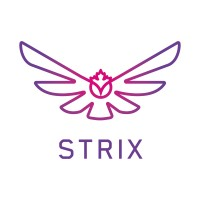
Partnering and CollaborationGrant and FundingOpen
The Initiative for Sustainable Aviation Technology (INSAT)
StrixFunding to accelerate sustainable aviation technology innovation in Canada
Eligible Funding
- No Condition
Eligible Industries
- Manufacturing
- Transportation and warehousing
- Professional, scientific and technical services
Types of eligible projects
Artificial Intelligence (AI)TechnologyEnvironment and ClimateInnovation

Partnering and CollaborationGrant and FundingClosed
Digital Health Innovation Fund
Digital Health & Discovery Platform (dhdp)Supports collaborative digital health innovation and data-driven research
Eligible Funding
- Minimum amount : 1 $
- Up to 75% of project cost
Eligible Industries
- Professional, scientific and technical services
- Educational services
- Health care and social assistance
Types of eligible projects
CommercializationArtificial Intelligence (AI)TechnologyInnovationDigital Transformation

Grant and FundingOpen
Productivity-Skills
Gouvernement du QuébecFunds workforce training projects to boost SME productivity and competitiveness
Eligible Funding
- Up to 85% of project cost
Eligible Industries
- Agriculture, forestry, fishing and hunting
- Manufacturing
- Transportation and warehousing
- Educational services
Types of eligible projects
Artificial Intelligence (AI)Environment and ClimateHuman ResourcesInnovationDigital Transformation

Partnering and CollaborationGrant and FundingOpenClosing Soon
Genomics Data Connect: Accelerating Agriculture Innovation
Genome AlbertaSupports collaborative genomics and AI research using Alberta agricultural datasets
Eligible Funding
- Maximum amount : 250,000 $
Eligible Industries
- Agriculture, forestry, fishing and hunting
Types of eligible projects
Artificial Intelligence (AI)TechnologyInnovation

Partnering and CollaborationGrant and FundingSuspended
PROMPT — Artificial intelligence
PROMPTSupports Quebec businesses in collaborative artificial intelligence innovation projects
Eligible Funding
- Maximum amount : 1,500,000 $
- Up to 35% of project cost
Eligible Industries
- Information and cultural industries
- Professional, scientific and technical services
Types of eligible projects
CommercializationArtificial Intelligence (AI)TechnologyInnovation

Grant and FundingExpert AdviceOpen
Guidance grants
Quebec City (FLI)Funding for business growth through specialized consulting services
Eligible Funding
- Maximum amount : 25,000 $
- Up to 30% of project cost
Eligible Industries
- Agriculture, forestry, fishing and hunting
- Utilities
- Manufacturing
- Information and cultural industries
Types of eligible projects
Artificial Intelligence (AI)TechnologyEnvironment and ClimateInnovationDigital Transformation

Grant and FundingClosed
MTRIC — PSO SME
Metal Transformation Research and Innovation Consortium (MTRIC)Funding for industrial research projects
Eligible Funding
- Maximum amount : 1,500,000 $
- Up to 40% of project cost
Eligible Industries
- Mining, quarrying, and oil and gas extraction
- Manufacturing
Types of eligible projects
Artificial Intelligence (AI)TechnologyInnovation

Other SupportGrant and FundingExpert AdviceClosed
DIANA — Challenge Call
North Atlantic Treaty Organization (NATO)Accelerates dual-use technology solutions for critical NATO challenges
Eligible Funding
- From $100,000 to $400,000
Eligible Industries
- All industries
Types of eligible projects
Artificial Intelligence (AI)TechnologyEnvironment and ClimateInnovation
Discover how much grant funding is available for your business
Subsidize your projects with grants!
Use our free grant estimator to quickly identify the available grant amounts for which your company may be eligible.

Grant and FundingOpen
Nonprofit Transformation Partner Certification Program
CharityVillagePractical certification building nonprofit digital transformation and responsible AI skills
Eligible Funding
- No Condition
Eligible Industries
- Educational services
- Other services (except public administration)
- Public administration
Types of eligible projects
Artificial Intelligence (AI)Digital Transformation

Grant and FundingExpert AdviceLoans and Capital investmentsOpen
Productivity and Sustainable Innovation Fund – Component 3: Project Implementation, It's time to take action!
NexDev | Haut-Richelieu Economic DevelopmentFinancial support for industrial productivity and digital transformation projects
Eligible Funding
- Maximum amount : 10,000 $
- Up to 10% of project cost
Eligible Industries
- Manufacturing
- Wholesale trade
- Transportation and warehousing
Types of eligible projects
Artificial Intelligence (AI)TechnologyInnovationDigital Transformation

Grant and FundingExpert AdviceOpen
Productivity and Sustainable Innovation Fund – Stream 1: Company consultations/micro-diagnosis and selection assistance
NexDev | Haut-Richelieu Economic DevelopmentFinancial support for productivity and innovation in local industries
Eligible Funding
- Maximum amount : 10,000 $
- Up to 50% of project cost
Eligible Industries
- Manufacturing
- Wholesale trade
- Transportation and warehousing
- Other services (except public administration)
Types of eligible projects
Artificial Intelligence (AI)TechnologyInnovationDigital Transformation

Grant and FundingClosed
PRIMA — PARTENAR-IA — Industry
Advanced Materials Research and Innovation Hub (PRIMA)Funding for Quebec innovative collaborations in AI for advanced materials
Eligible Funding
- Maximum amount : 150,000 $
- Up to 50% of project cost
Eligible Industries
- Agriculture, forestry, fishing and hunting
- Manufacturing
Types of eligible projects
Artificial Intelligence (AI)TechnologyInnovation

Other SupportPartnering and CollaborationExpert AdviceOpenClosing Soon
Singapore fintech - Canadian Technology Accelerator
Government of CanadaNo-cost business development support for Canadian fintech entering Singapore
Eligible Funding
- No Condition
Eligible Industries
- Finance and insurance
- Professional, scientific and technical services
Types of eligible projects
CommercializationArtificial Intelligence (AI)TechnologyDigital Transformation

Grant and FundingOpen
Rail Transportation Infrastructure and Modal Integration Support Program — Part 3 — Studies
Minister of Transport and Sustainable Mobility of QuebecFinancial support for studies improving Quebec rail and modal integration
Eligible Funding
- Maximum amount : 250,000 $
- Up to 66.67% of project cost
Eligible Industries
- Agriculture, forestry, fishing and hunting
- Mining, quarrying, and oil and gas extraction
- Utilities
- Construction
Types of eligible projects
CommercializationArtificial Intelligence (AI)TechnologyEnvironment and ClimateConstruction and Renovation Human ResourcesBusiness BuyoutInnovationDigital Transformation

Eligible Funding
- No Condition
Eligible Industries
- Manufacturing
- Information and cultural industries
- Professional, scientific and technical services
Types of eligible projects
Artificial Intelligence (AI)Technology

Other SupportResearchers And FacilitiesExpert AdviceOpen
OPZI – Innovation in optics and photonics
OptechAccelerated R&D support for optics photonics and quantum innovation
Eligible Funding
- Up to 40% of project cost
Eligible Industries
- Manufacturing
- Professional, scientific and technical services
Types of eligible projects
Artificial Intelligence (AI)TechnologyInnovation

Partnering and CollaborationGrant and FundingClosed
CACHE Challenges
ConscienceOpen competition advancing computational drug discovery through expert collaboration
Eligible Funding
- Maximum amount : 75,000 $
- Up to 50% of project cost
Eligible Industries
- Manufacturing
- Professional, scientific and technical services
- Health care and social assistance
Types of eligible projects
Artificial Intelligence (AI)TechnologyInnovation
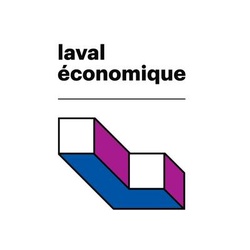
Grant and FundingClosed
Laval économique — Tech shift – Manufacturing
Laval EconomiqueDigital transformation grants for Laval manufacturers
Eligible Funding
- Maximum amount : 75,000 $
- Up to 25% of project cost
Eligible Industries
- Manufacturing
Types of eligible projects
Artificial Intelligence (AI)Digital Transformation

Partnering and CollaborationGrant and FundingClosed
Genomic Innovations: Energy and Environmental Solutions
Genome AlbertaSupports genomics-driven solutions for energy and environmental sectors
Eligible Funding
- From $300,000 to $750,000
Eligible Industries
- Agriculture, forestry, fishing and hunting
- Mining, quarrying, and oil and gas extraction
- Utilities
- Professional, scientific and technical services
Types of eligible projects
Artificial Intelligence (AI)TechnologyEnvironment and ClimateInnovation

Grant and FundingClosed
Innovation in Quantum Technologies — Stream 3
Ministère de l'économie, de l'innovation et de l'énergie du Québec (MEIE)Money for collaborative projects in partnership with public research centres
Eligible Funding
- Maximum amount : 1,500,000 $
- Up to 35% of project cost
Eligible Industries
- Agriculture, forestry, fishing and hunting
- Mining, quarrying, and oil and gas extraction
- Construction
- Manufacturing
Types of eligible projects
Artificial Intelligence (AI)Technology

Partnering and CollaborationGrant and FundingExpert AdviceClosed
Game Changer Pitch Competition
Decentralised Energy Canada (DEC)Pitch competition for innovative decentralised energy technology companies
Eligible Funding
- No Condition
Eligible Industries
- Utilities
- Information and cultural industries
- Professional, scientific and technical services
Types of eligible projects
Artificial Intelligence (AI)TechnologyEnvironment and ClimateInnovation

Grant and FundingOpen
Energy Innovation Program – Advancing Canada’s clean energy future
Natural Resources Canada (NRCan)Supports innovative clean energy technology research and development
Eligible Funding
- No Condition
Eligible Industries
- Mining, quarrying, and oil and gas extraction
- Utilities
- Manufacturing
- Transportation and warehousing
Types of eligible projects
Artificial Intelligence (AI)TechnologyEnvironment and ClimateInnovation

Grant and FundingExpert AdviceLoans and Capital investmentsOpen
MRC Sept-Rivières — Support for entrepreneurship (SE)
MRC de Sept-RivièresFinancial support for local entrepreneurs and social economy projects
Eligible Funding
- Maximum amount : 150,000 $
- Up to 50% of project cost
Eligible Industries
- Agriculture, forestry, fishing and hunting
- Manufacturing
- Information and cultural industries
- Accommodation and food services
Types of eligible projects
Artificial Intelligence (AI)TechnologyEnvironment and ClimateBusiness BuyoutInnovationDigital Transformation

Partnering and CollaborationGrant and FundingOpen
Canadian Semiconductor R&D Partnering Delegation to France
Government of CanadaSupports Canadian SMEs partnering in France for semiconductor R&D
Eligible Funding
- Maximum amount : 15,000 $
- Up to 50% of project cost
Eligible Industries
- Manufacturing
- Professional, scientific and technical services
Types of eligible projects
CommercializationArtificial Intelligence (AI)TechnologyInnovation

Grant and FundingClosed
Protein Industries Canada — Artificial Intelligence
Protein Industries CanadaAccelerating the translation of AI research into commercial innovations, benefiting Canada's plant-based and agrifood sector.
Eligible Funding
- Up to 45% of project cost
Eligible Industries
- Agriculture, forestry, fishing and hunting
- Manufacturing
Types of eligible projects
Artificial Intelligence (AI)Innovation
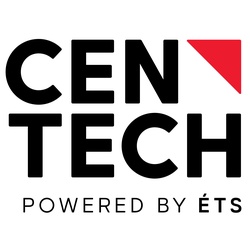
Eligible Funding
- No Condition
Eligible Industries
- All industries
Types of eligible projects
Artificial Intelligence (AI)Technology

Expert AdviceOpen
NUMERIA program
Computer Research Institute of Montreal (CRIM)Training in Artificial Intelligence (AI) for Quebec SMEs
Eligible Funding
- No Condition
Eligible Industries
- Manufacturing
- Information and cultural industries
- Professional, scientific and technical services
- Health care and social assistance
Types of eligible projects
Artificial Intelligence (AI)TechnologyInnovation

Partnering and CollaborationGrant and FundingOpen
Eurogia Cluster's 30th Call for proposals – Clean Technologies
National Research Council Canada (NRC)Funding for international clean-tech collaborative R&D by Canadian SMEs
Eligible Funding
- Up to 70% of project cost
Eligible Industries
- Utilities
- Manufacturing
- Information and cultural industries
- Professional, scientific and technical services
Types of eligible projects
Artificial Intelligence (AI)TechnologyEnvironment and ClimateInnovation
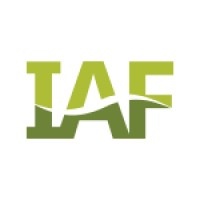
Grant and FundingOpen
Food Processing Growth Fund (FPG)
Investment Agriculture Foundation (IAF)Supports scaling BC food processors for productivity and growth
Eligible Funding
- From $100,000 to $1,000,000
- Up to 75% of project cost
Eligible Industries
- Manufacturing
Types of eligible projects
Artificial Intelligence (AI)TechnologyConstruction and Renovation Innovation

Grant and FundingClosed
Artificial Intelligence Behaviour Monitoring Solution
Innovation, Science and Economic Development Canada (ISED)Accelerate small business R&D with comprehensive financial support and commercialization pathways.
Eligible Funding
- Maximum amount : 1,000,000 $
Eligible Industries
- Public administration
Types of eligible projects
Artificial Intelligence (AI)

Grant and FundingOpen
Scale AI — STEM Youth Awareness Program
Scale AI ClusterAI and data science training for Canadian youth
Eligible Funding
- No Condition
Eligible Industries
- Educational services
Types of eligible projects
Artificial Intelligence (AI)

Grant and FundingOpen
Regional Artificial Intelligence Initiative (RAII) in the Prairie Provinces
Prairies Economic Development Canada (PrairiesCan)Empower your company's growth and competitiveness by adopting AI through substantial funding opportunities
Eligible Funding
- From $250,000 to $5,000,000
- Up to 50% of project cost
Eligible Industries
- Agriculture, forestry, fishing and hunting
- Mining, quarrying, and oil and gas extraction
- Manufacturing
- Information and cultural industries
Types of eligible projects
CommercializationArtificial Intelligence (AI)Digital Transformation

Grant and FundingLoans and Capital investmentsArchived
Québec city — Supporting the development of the Saint-Roch district
Quebec City (FLI)Financial support for business development projects in Saint-Roch
Eligible Funding
- Maximum amount : 500,000 $
- Up to 25% of project cost
Eligible Industries
- Information and cultural industries
- Finance and insurance
- Professional, scientific and technical services
- Arts, entertainment and recreation
Types of eligible projects
Artificial Intelligence (AI)TechnologyInnovationDigital Transformation
Access over 10 000 different funding opportunities
Try the helloDarwin platform today and find programs that fit your needs
The helloDarwin application makes it easy to unlock grants so your business can grow faster—with less hassle and more impact.

Grant and FundingClosed
NSERC Alliance – Alberta Innovates Advance Program
Alberta InnovatesSupports Alberta university researchers advancing emerging technology discoveries
Eligible Funding
- Maximum amount : 150,000 $
Eligible Industries
- Professional, scientific and technical services
Types of eligible projects
CommercializationArtificial Intelligence (AI)TechnologyInnovation

Grant and FundingClosed
innovÉÉ — PARTENAR-IA — Industry
innovÉÉFunding for Quebec electricity innovative collaborations in AI
Eligible Funding
- Maximum amount : 1,500,000 $
- Up to 35% of project cost
Eligible Industries
- Agriculture, forestry, fishing and hunting
- Mining, quarrying, and oil and gas extraction
- Construction
- Manufacturing
Types of eligible projects
Artificial Intelligence (AI)TechnologyInnovation

Grant and FundingClosed
OCI — Critical Industrial Technologies initiative (CIR)
Ontario Centre of Innovation (OCI)Supports Ontario SMEs in adopting critical industrial technologies
Eligible Funding
- From $50 to $1,000,000
Eligible Industries
- Agriculture, forestry, fishing and hunting
- Mining, quarrying, and oil and gas extraction
- Construction
- Manufacturing
Types of eligible projects
CommercializationArtificial Intelligence (AI)Technology

Tax CreditsOpen
Show production tax credit
Société de développement des entreprises culturelles (SODEC)Supports Quebec show producers with refundable tax assistance
Eligible Funding
- Maximum amount : 1,250,000 $
- Up to 35% of project cost
Eligible Industries
- Arts, entertainment and recreation
Types of eligible projects
CommercializationArtificial Intelligence (AI)TechnologyEnvironment and ClimateHuman ResourcesBusiness BuyoutInnovationDigital Transformation

Expert AdviceOpen
Quebec International — Set up or expand a business
Québec InternationalSupport to start or grow a business in Quebec City
Eligible Funding
- No Condition
Eligible Industries
- Manufacturing
- Information and cultural industries
- Finance and insurance
- Health care and social assistance
Types of eligible projects
Artificial Intelligence (AI)TechnologyHuman ResourcesBusiness BuyoutInnovationDigital Transformation

Partnering and CollaborationGrant and FundingClosed
Eurogia Cluster's 29th Call for proposals – Clean Technologies
National Research Council Canada (NRC)Supports collaborative international R&D in clean technology innovation
Eligible Funding
- No Condition
Eligible Industries
- Utilities
- Construction
- Manufacturing
- Information and cultural industries
Types of eligible projects
Artificial Intelligence (AI)TechnologyEnvironment and ClimateInnovation

Grant and FundingClosed
Gen AI Call for Projects
Scale AI ClusterSupports collaborative generative AI projects improving operational productivity in Canada
Eligible Funding
- Minimum amount : 750,000 $
- Up to 50% of project cost
Eligible Industries
- Professional, scientific and technical services
Types of eligible projects
CommercializationArtificial Intelligence (AI)

Grant and FundingClosed
Alberta Innovates — Digital Innovation in Clean Energy (DICE)
Alberta InnovatesAccelerate digital innovation to drive job creation, reduce emissions, and enhance energy efficiency
Eligible Funding
- Maximum amount : 250,000 $
- Up to 50% of project cost
Eligible Industries
- Mining, quarrying, and oil and gas extraction
Types of eligible projects
Artificial Intelligence (AI)TechnologyEnvironment and ClimateInnovationDigital Transformation

Expert AdviceClosed
AI Expertise Program
Caisse de dépôt et placement du QuébecSupports technological innovation and AI integration for Québec companies
Eligible Funding
- No Condition
Eligible Industries
- Professional, scientific and technical services
Types of eligible projects
Artificial Intelligence (AI)
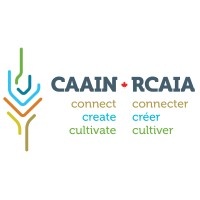
Partnering and CollaborationGrant and FundingClosed
CAAIN — 2025 Broadacre Cropping Program
Canadian Agri-Food Automation and Intelligence Network (CAAIN)Funding for collaborative innovation in large-scale Canadian crop production
Eligible Funding
- Maximum amount : 600,000 $
- Up to 40% of project cost
Eligible Industries
- Agriculture, forestry, fishing and hunting
Types of eligible projects
CommercializationArtificial Intelligence (AI)TechnologyEnvironment and ClimateHuman ResourcesInnovationDigital Transformation

Grant and FundingClosed
Alberta Innovates — Health Innovations
Alberta InnovatesFunding for health solutions in Alberta
Eligible Funding
- Maximum amount : 200,000 $
- Up to 75% of project cost
Eligible Industries
- Health care and social assistance
Types of eligible projects
CommercializationArtificial Intelligence (AI)InnovationDigital Transformation

Grant and FundingClosed
Call for innovative projects in artificial intelligence: collaborative industrial research and support for innovative entrepreneurship
Gouvernement du QuébecSupports Quebec businesses innovating and commercializing artificial intelligence technologies
Eligible Funding
- Maximum amount : 1,500,000 $
Eligible Industries
- Professional, scientific and technical services
Types of eligible projects
CommercializationArtificial Intelligence (AI)Innovation

Grant and FundingArchived
Invest-AI — Funding AI adoption
Ivado LabsSupports Quebec businesses integrating AI to boost productivity and competitiveness
Eligible Funding
- No Condition
Eligible Industries
- Professional, scientific and technical services
Types of eligible projects
Artificial Intelligence (AI)Technology
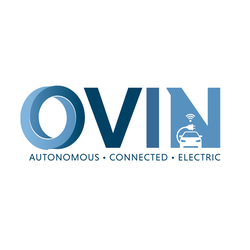
Wage Subsidies And InternsOpen
OVIN — TalentEdge Internship
Ontario Vehicle Innovation Network (OVIN)Interns for automotive and smart mobility technology
Eligible Funding
- No Condition
Eligible Industries
- Manufacturing
- Transportation and warehousing
- Information and cultural industries
- Professional, scientific and technical services
Types of eligible projects
Artificial Intelligence (AI)TechnologyInnovation

Grant and FundingClosed
INOVAIT Pilot Fund
INOVAIT CanadaFunding for AI-integrated image-guided therapy commercialization projects
Eligible Funding
- From $100,000 to $150,000
- Up to 3333% of project cost
Eligible Industries
- Professional, scientific and technical services
- Health care and social assistance
Types of eligible projects
CommercializationArtificial Intelligence (AI)Technology

Researchers And FacilitiesPartnering and CollaborationGrant and FundingClosed
AI Sovereign Compute Infrastructure Program
Innovation, Science and Economic Development Canada (ISED)Supports Canadian AI innovation with advanced national computing infrastructure
Eligible Funding
- No Condition
Eligible Industries
- Manufacturing
- Information and cultural industries
- Professional, scientific and technical services
- Educational services
Types of eligible projects
Artificial Intelligence (AI)

Partnering and CollaborationGrant and FundingOpenClosing Soon
Canadian Cleantech for Mining Mission to Australia and Indonesia
Government of CanadaSupports Canadian cleantech mining innovators expanding into Australia and Indonesia
Eligible Funding
- Maximum amount : 5,000 $
- Up to 75% of project cost
Eligible Industries
- Mining, quarrying, and oil and gas extraction
- Utilities
- Manufacturing
- Professional, scientific and technical services
Types of eligible projects
CommercializationArtificial Intelligence (AI)TechnologyEnvironment and ClimateInnovation

Grant and FundingClosed
MEDTEQ+ — PARTENAR-IA — Academic
Consortium de recherche et d’innovation en technologies médicales du QuébecFunding for Quebec R&D collaborations in AI for health technologies
Eligible Funding
- Maximum amount : 1,500,000 $
- Up to 35% of project cost
Eligible Industries
- Transportation and warehousing
- Health care and social assistance
Types of eligible projects
Artificial Intelligence (AI)Construction and Renovation

Partnering and CollaborationGrant and FundingClosed
Canadian Agriculture Technology Innovation R&D Partnering Delegation to Brazil
Government of CanadaSupports Canadian agtech SMEs in R&D collaboration with Brazil
Eligible Funding
- Up to 50% of project cost
Eligible Industries
- Agriculture, forestry, fishing and hunting
- Professional, scientific and technical services
Types of eligible projects
CommercializationArtificial Intelligence (AI)TechnologyEnvironment and ClimateInnovation

Other SupportPartnering and CollaborationGrant and FundingClosed
CFIN — Foodtech Frontier 25
Canadian Food Innovation Network (CFIN)Honouring top Canadian innovators in food technology sector
Eligible Funding
- No Condition
Eligible Industries
- Manufacturing
- Retail trade
- Professional, scientific and technical services
- Accommodation and food services
Types of eligible projects
Artificial Intelligence (AI)TechnologyEnvironment and ClimateInnovationDigital Transformation

Tax CreditsOpen
Saskatchewan Technology Startup Incentive (STSI)
Government of SaskatchewanMoney to invest in tech startups in Sask.
Eligible Funding
- Maximum amount : 2,000,000 $
- Up to 45% of project cost
Eligible Industries
- Information and cultural industries
- Professional, scientific and technical services
Types of eligible projects
CommercializationArtificial Intelligence (AI)TechnologyEnvironment and ClimateDigital Transformation

Grant and FundingClosed
Alberta Innovates — Health Innovation Platform Partnerships Program
Alberta InnovatesSupports coordinated health innovation ecosystem development in Alberta
Eligible Funding
- Maximum amount : 200,000 $
- Up to 75% of project cost
Eligible Industries
- Health care and social assistance
Types of eligible projects
Artificial Intelligence (AI)TechnologyInnovation
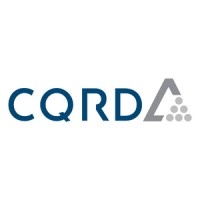
Grant and FundingOpen
CQRDA — PARTENAR-IA — Business
Centre québécois de recherche et de développement de l’aluminium (CQRDA)Funding for Quebec innovative collaborations in AI, using aluminium
Eligible Funding
- Maximum amount : 1,500,000 $
- Up to 50% of project cost
Eligible Industries
- Agriculture, forestry, fishing and hunting
- Mining, quarrying, and oil and gas extraction
- Construction
- Manufacturing
Types of eligible projects
Artificial Intelligence (AI)TechnologyInnovation

Grant and FundingClosed
PRIMA — Call For Projects In Artificial Intelligence And Quantum Technologies
Advanced Materials Research and Innovation Hub (PRIMA)Funding for AI and quantum technology innovation projects
Eligible Funding
- Maximum amount : 1,500,000 $
- Up to 35% of project cost
Eligible Industries
- Agriculture, forestry, fishing and hunting
- Manufacturing
- Transportation and warehousing
- Information and cultural industries
Types of eligible projects
Artificial Intelligence (AI)TechnologyInnovation

Grant and FundingClosed
Pierre Péladeau Scholarships
AsterXFunding and support for innovative university student entrepreneurs in Quebec
Eligible Funding
- Maximum amount : 75,000 $
Eligible Industries
- Agriculture, forestry, fishing and hunting
- Mining, quarrying, and oil and gas extraction
- Manufacturing
- Retail trade
Types of eligible projects
Artificial Intelligence (AI)TechnologyEnvironment and ClimateHuman ResourcesInnovation
Any questions about Artificial Intelligence grants?
Learn more about funding for Artificial Intelligence.